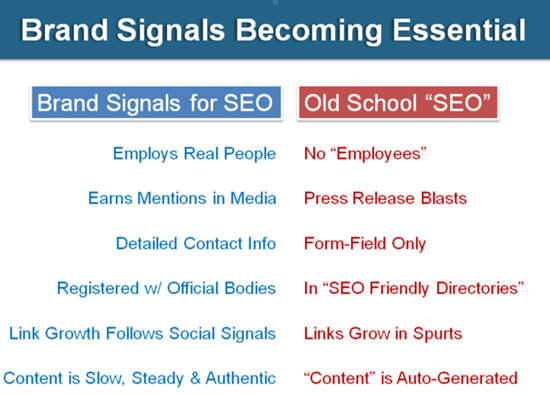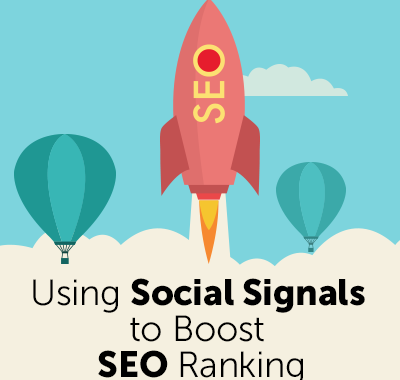 We ran across this article today over at Forbes and thought we would add our two cents. The article mentioned in part:
We ran across this article today over at Forbes and thought we would add our two cents. The article mentioned in part:
Brand signals are huge.
Google and other search engines appear to be valuing brand integrity, measuring something called brand signals. Brand signals are the digital presence that your brand possesses. It could include social buzz around your branded terms, Google+ optimization, mentions in other publications, or your personal brand visibility associated with your brand name. With Google’s Knowledge Graph, brands that are doing it right can get powerful a powerful SERP presence.
And MOZ has an ongoing forum conversation up regarding the topic.
Here are our 12 tips regarding brand signals, social signals and how they can impact your SEO:
1. Brand Name Anchor Text: Branded anchor text is a simple — but strong — brand signal.
2. Branded Searches: It’s simple: people search for brands. If people search for your site in Google (ie. “Search Marketing Team twitter”, Search Marketing Team + “ranking factors”), Google likely takes this into consideration when determining a brand.
3. Site Has Facebook Page and Likes: Brands tend to have Facebook pages with lots of likes.
4. Site has Twitter Profile with Followers: Twitter profiles with a lot of followers signals a popular brand.
5. Official Linkedin Company Page: Most real businesses have company Linkedin pages.
6. Employees Listed at Linkedin: Rand Fishkin thinks that having Linkedin profiles that say they work for your company is a brand signal.
7. Legitimacy of Social Media Accounts: A social media account with 10,000 followers and 2 posts is probably interpreted a lot differently than another 10,000-follower strong account with lots of interaction.
8. Brand Mentions on News Sites: Really big brands get mentioned on Google News sites all the time. In fact, some brands even have their own Google News feed on the first page.
9. Co-Citations: Brands get mentioned without getting linked to. Google likely looks at non-hyperlinked brand mentions as a brand signal.
10. Number of RSS Subscribers: Considering that Google owns the popular Feedburner RSS service, it makes sense that they would look at RSS Subscriber data as a popularity/brand signal.
11. Brick and Mortar Location With Google+ Local Listing: Real businesses have offices. It’s possible that Google fishes for location-data to determine whether or not a site is a big brand.
12. Website is Tax Paying Business: Moz reports that Google may look at whether or not a site is associated with a tax-paying business.

